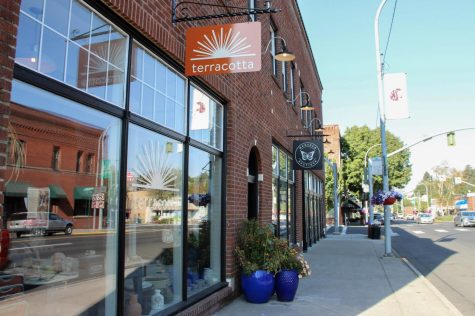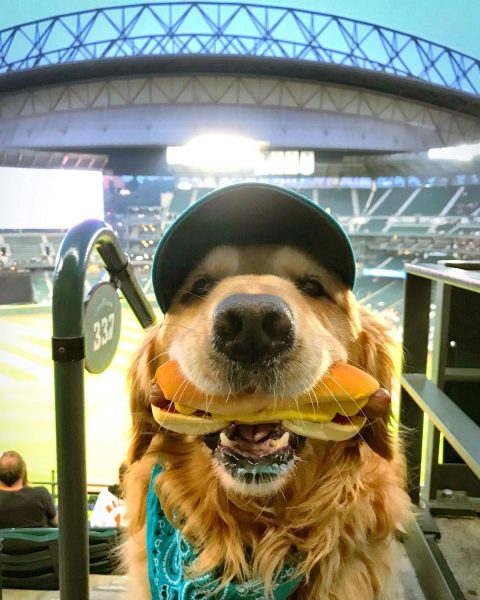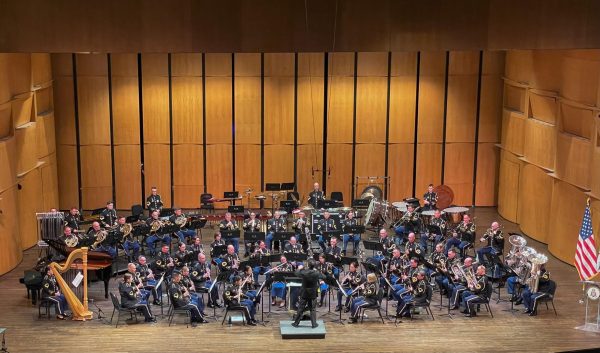Non-profit raises funds for puppy
Family of dog still needs $3,000 to treat heart valve disorder through WSU vets
September 10, 2020
Severus, just like any typical German Shephard puppy, loves to play fetch and tug-of-war. However, due to her condition, she cannot play at the level most puppies her age should, said Lori Ammons, volunteer at Cooper’s Legacy Foundation.
“Her body just cannot keep her blood oxygenated,” she said. “This is because the pulmonic valve tends to be narrowed and fused together.”
The Pullman non-profit, Cooper’s Legacy Foundation, is holding a fundraiser to help raise money for

a 9-month-old puppy with a congenital heart valve disorder.
This heart condition can be easily seen on an electrocardiogram. This type of ultrasound allows a veterinarian to see the blood through the heart, she said.
Severus is from Seattle, and the local vet who initially diagnosed her with this disorder graduated from the WSU College of Veterinary Medicine. The vet recommended that the family seek treatment at WSU, Ammons said.
WSU sets a cost with a low and a high amount for the procedure. Treatment is not difficult, but the ability to pay for it is. The family of Severus reached out to WSU’s Good Samaritan Program and the Mosby Foundation based in Virginia, she said.
Severus’ family has $1,000 to contribute and the Mosby Foundation contributed $800. Unfortunately, WSU’s Good Samaritan Fund was not able to assist them and there is still $3,000 needed to pay for her life-saving procedure, Ammons said.
The outcome for the animal depends on the severity of the condition and the age of the patient. If the animal’s unique situation is not severe, the patient can go on to live a relatively normal life, said Ryan Baumwart, doctor of veterinary medicine at WSU.
“This type of heart valve disorder can produce symptoms that range from the animal easily fatiguing to passing out,” he said. “Some animals go into heart failure without intervention.”
The surgery also is minimally invasive, and the patient is typically sent home the next day, he said. A tiny incision is made in the neck, and the dog sees immediate improvement, aside from the general effects of anesthesia.
“While this surgery is not a curative fix, it will allow the patient to live and have a relatively normal life,” Dr. Baumwart said .
Without any treatment for this disorder, the animal will start to get fluid build-up in the lungs, arrhythmia and will eventually lead to death, he said.
“We do this on an ongoing basis and we have a whole tab of success stories,” Ammons said. “Our foundation receives the greatest satisfaction from being able to help another family save their pet.”

















